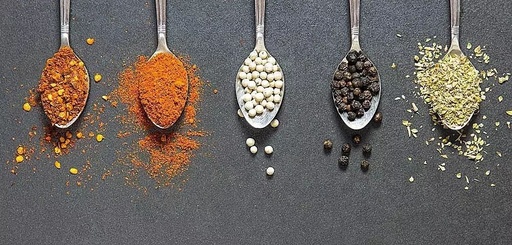
The taste preferences of individuals are like unique business cards; some people love sweets, others cannot live without spice, and some are addicted to sour flavors…
In fact, aside from geographical environment, dietary habits formed from childhood, and genetic factors, a preference for a certain taste can sometimes signal nutritional imbalance or health abnormalities. A sudden change in taste preferences may serve as a health warning from the body.

Life Times (search “LT0385” on WeChat to follow) invited experts to interpret the health signals hidden in taste preferences and teach you how to assess disease risks based on your taste.
Interviewed Expert:
Associate Professor Zhao Yan, Beijing University of Chinese Medicine
Traditional Chinese Medicine (TCM) believes that the five flavors (sour, bitter, sweet, spicy, salty) originate from the qi of heaven and earth, with each of the five organs corresponding to a specific flavor: sour enters the liver, bitter enters the heart, sweet enters the spleen, spicy enters the lungs, and salty enters the kidneys.
A long-term preference for a specific flavor can trigger a “chain reaction” in the five organs, which is detrimental to health. Conversely, diseases of the five organs can affect the taste function of the tongue, leading to changes in preferences for the five flavors or sudden shifts in taste.
Preference for Sour Flavor Indicates Liver Issues
Sour enters the liver, and sour flavors nourish the liver. For example, dishes from Shanxi and Shaanxi often have a sour taste due to the dry climate, which can deplete bodily fluids; consuming sour foods can help nourish yin fluids.
A preference for sour flavors or a sudden craving for sour foods may reflect liver problems. Long-term preference for sour flavors or excessive consumption of sour foods can lead to liver stagnation and qi obstruction.
Due to the astringent and constricting nature of sourness, excessive sour preference can hinder the normal physiological functions of the stomach, leading to spleen and stomach issues.

Those who enjoy sour flavors can choose fresh fruits and vegetables such as tomatoes, oranges, bayberries, pomegranates, lemons, grapes, green apples, and hawthorn, while reducing the intake of pickled vegetables and vinegar products.
Preference for Bitter Flavor Often Indicates Excess Heart Fire
Bitter enters the heart, and bitter flavors can clear heart fire and dispel summer heat. A preference for bitter foods often indicates excess heart fire, commonly accompanied by symptoms such as palpitations, insomnia, mouth sores, and a red tongue tip.
Although bitter foods have certain nutritional value, most are cold in nature. Long-term preference for bitter flavors can damage heart qi and exacerbate symptoms of spleen and stomach deficiency, such as poor appetite, abdominal cold pain, and diarrhea.
Research has shown that frequent consumption of bitter foods and herbal teas can also lead to bone and joint system diseases.

Those who enjoy bitter flavors can moderately choose bitter melon, kale, aloe vera, bitter tea, water arrow grass, and other bitter herbs. When consuming bitter vegetables, it is advisable to soak them briefly in light salt water, rinse, and then eat.
Drinking herbal tea should be done in moderation, preferably not on an empty stomach.
Preference for Sweet Flavor Harms the Spleen and Stomach
Sweet enters the spleen, and sweet flavors nourish the spleen and stomach. However, those who crave sweet foods often have spleen deficiency issues. For instance, in the Jiangsu and Zhejiang regions, the low-lying terrain and humid climate make people prone to spleen and stomach diseases, leading to a preference for sweet flavors, often referred to as “Southern Sweet” in dietary terms.
Clinically, patients with spleen and stomach diseases often crave sweet foods, and this preference can further damage the spleen and stomach. For patients with ulcers, it can stimulate excessive gastric acid secretion, worsening their condition.
Craving sweet flavors can also lead to dental caries, diabetes, obesity, and increase the risk of respiratory diseases.

One can choose low-sugar yet sweet-tasting grains, fruits, and vegetables, such as yam, lotus root, pumpkin, sweet potato, corn, beans, loquats, apples, pineapples, and kiwis. Alternatives to desserts can include lotus leaf mung bean porridge, fruit jelly, and yam stew.
Preference for Spicy Flavor Depletes Qi
Spicy enters the lungs, and spicy flavors can release the exterior, move qi, and regulate blood. In regions like Sichuan, where the terrain is mountainous and prone to miasma, locals enjoy spicy foods to promote qi and blood circulation and dispel miasma.
A preference for spicy foods in lung disease is often a natural choice to physiologically release lung qi and alleviate symptoms. However, excessive consumption of spicy foods can lead to over-exhaustion of lung qi, qi depletion, and fatigue.

“No spice, no joy” can easily lead to gastrointestinal and anal diseases.
In daily cooking, adding fresh ginger, chili, garlic, and onions as spices can improve appetite, but it should be done in moderation to avoid irritating the stomach.
Preference for Salty Flavor Harms Kidney Essence
Salty enters the kidneys, and moderate saltiness nourishes the kidneys. In northern regions, where it is cold, dishes and tastes often lean towards saltiness, as salt can nourish the kidneys, transform into yang qi to resist the cold, and enhance the body’s ability to withstand cold.

Patients with kidney disease often have a dulled sense of taste for salty and sour flavors, making them prone to excessive salt intake. TCM believes that a long-term preference for salty flavors can damage kidney essence and may lead to hypertension, heart disease, asthma, chronic kidney disease, and more.
It is advisable to consciously reduce salt intake and maintain a light diet to prevent dulled taste buds, which can create a vicious cycle of increasing salt consumption.
The five flavors can transform into yin essence, nourishing the five organs, but if one excessively favors a particular flavor, it can disrupt the coordination among the five organs, leading to disease.
Additionally, one should adjust their taste preferences according to the changes in natural laws; for example, in spring, reduce sour and increase sweet to nourish the spleen; in summer, reduce bitter and increase spicy to nourish the lungs; in autumn, reduce spicy and increase sour to nourish the liver; and in winter, reduce salty and increase bitter to nourish the heart. ▲
This issue was edited by: Wang Xiaoqing
Copyright Notice: This article is original to Life Times (WeChat ID: LT0385) and may not be reproduced without authorization.

We do not spread rumors or gossip.
We do not use sensational headlines to attract attention.
We do not exist solely for the sake of shares.
Please believe in the power of originality.
On the road to health, we are willing to walk seriously with you.
Supervised by People’s Daily, organized by Global Times.
WeChat ID: LT0385
Cooperation inquiries
010-65363786
010-65363791

